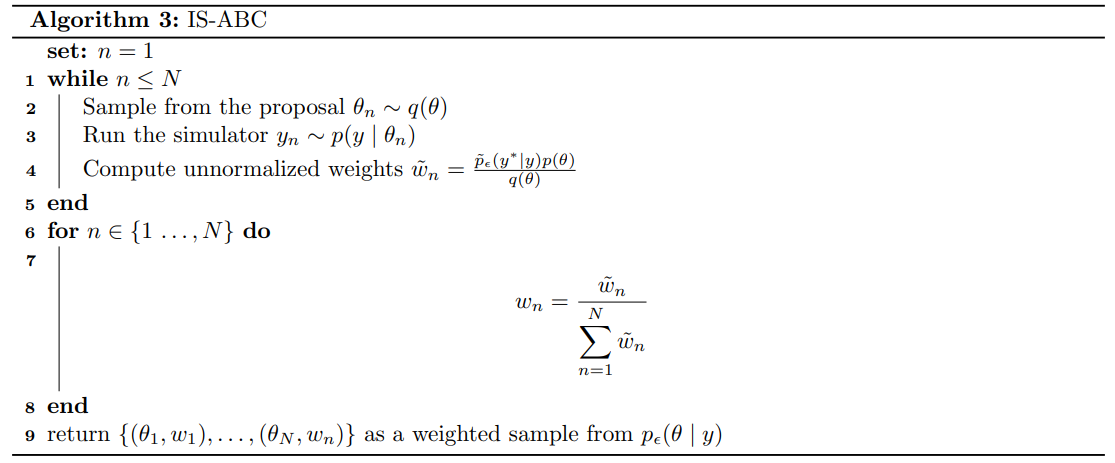Generalizations
Importance Sampling ABC
Consider again the Soft-ABC algorithm. Remember that we compute unnormalized weights using a kernel and then we normalize them, similar to how we do in Importance Sampling. Indeed, it turns out we can generalize Soft-ABC to something called Importance Sampling ABC or IS-ABC.
First of all, we need a proposal distribution. Usually one chooses

It is immediately clear that Soft-ABC is just a special case of this where our proposal distribution is
You can play around with IS-ABC applied to the Two Moons example here. Notice that it may take a while to run.
Generalized Rejection ABC
One can generalize Rejection-ABC to a likelihood-free rejection sampler. The target distribution is still the augmented ABC posterior

It is well-known in Rejection sampling that the optimal value for the constant